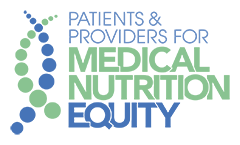My name is Kendall Temple Jr. and was born in 1966. I was one of every first people diagnosed with PKU in the state of Maryland. There was very little know about how to treat PKU back then and only one formula Lofenalac existed at this time. The cost for my formula as an infant was $224 per one gallon can. My family’s weekly income before taxes was $75 which caused an extreme finical burden my family. My family received assistance from The Crippled Children’s Fund paying $200 towards my formula which left $24 out of pocket. The only way we were able to afford my formula was by my mother taking on sewing jobs on weekends and evenings. My diet consisted of vegetable, formula, and not much more but hard candies were free and I could eat as many as I wanted. Maybe that why I never was able to sit still in school. The goal of my diet was to keep me at 15 grams of protein per meal. The protein equivalent to 15 mg is 1 Oikos Greek Yogurt cup. During the time of the late 60’s and 70’s science believed that a person’s brain fully developed by age 12which is the reason I was taking off diet at age 11. Dr. David Valle and Dr. Kelly Przyepa of The Genetics Clinic of Johns Hopkins Hospital where I was followed for my PKU sent a letter to me on December 19,1994, age 28, advising me that doctors who treat people with PKU have learned from studies that it is recommended that a person with PKU should be on diet for life. At age 28 after eating anything I wanted, for so many years. I attempted to return to the very restrictive PKU diet because that is what my PKU doctor felt was best practice for me at that time. I attended a PKU Picnic along with my dietitian to explore possible specialty foods that I would need to return back on diet. I can never forget the excitement that I had inside knowing that I finally was doing what was best for my long term health by starting back on diet. But that excitement quickly turned to disappointment and anger because while at the picnic I learned that my health insurance would not cover the $1600 per month for formula and specialties foods to protect my brain from extremely high blood PHE levels. I remembers the insurance agent response to me when asking for the specialty food to be covered “Why would we ever pay for you to eat.” As an alternative to going back on diet I tried to eat as a vegetarian but became extremely weak and lacked energy to work or be an active part of my 4 children’s life. This time was very difficult for me emotionally because I felt as a failure and I let everyone down mostly my family. I know in my heart that I would have been able to return to the PKU diet if I only had a chance by having my needs covered by my insurance company. Little did I know what was going to happen to me when I hit my forties due to high blood PHE levels. When I turned around 42 I started experiencing neurological problem which included issues with being forgetful, focus and could get angry quickly for every little reasons. This had an impact on my employment and both family and social relationships.
In September of 2013 I agreed to join a clinical trial for a new medication to treatment PKU which is known today as Palynziq. When starting the trial my blood PHE level had reached 36 ng/dc which is considered extremely high. Today I continue to take Palynziq and eat a regular diet as I have since age 11. Palynziq has help me to lower my PHE levels to the preferred range of 1-6 for PKU people. But it is important to note that not all people with PKU respond well to Palynziq. This is why it is so important to me to passing the Medical Nutrition Equity Act and provided the funding to pay for the specialty foods and formula. I hope that My story with PKU has help in your understanding of an extreme need to support people with PKU. Thank you for taking the time to read my story. I have insuance via my wife’s employer. I am off diet and take Palynziq which cost $20,000 per month. I have not paid out of pocket at this time but exteremly worried that one day I may have to come out of pocket.
